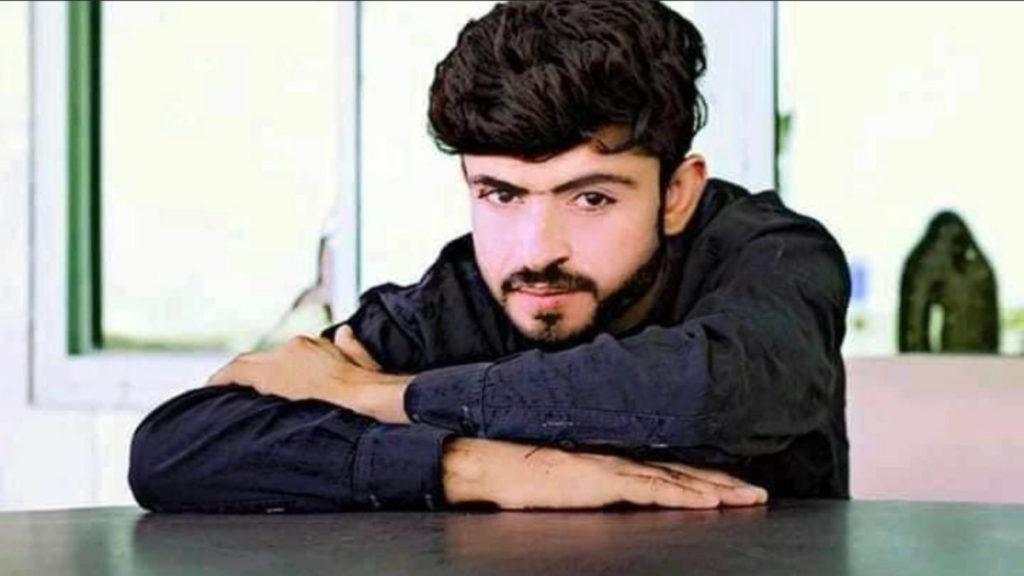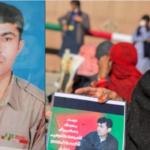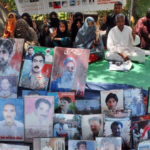In a statement issued on 08 March, the Counter Terrorism Department said they killed five members of an armed nationalist group during an intelligence-guided raid on a hideout in Mastung, around 50 km south of Quetta, the administrative capital and the biggest military base of Balochistan. The deceased were identified as Samiullah Perkani, Jamil Perkani, Arif Mari, Yousuf Mari and Shah Nezar.
All of them had been abducted by security forces and were reported as missing persons, a very common pattern in which the security forces abduct and disappear people for an unknown period of time. Many of them appear dead, some after months, some years and some after days or hours. Thousands are still missing and no one knows about their whereabouts.
A BBC report says that more than a thousand bodies were found in Balochistan between 2011 to 2016. The Edhi Foundation, one of the country’s biggest charity organizations, manages three graveyards near Quetta where they had buried more than three hundred bodies found in the mountains of the region at different times and they were never identified. These bodies do not include the bodies found in mass graves in the region.
In 2014, a shepherd found mass graves in the Khuzdar region of Balochistan. He informed the people and eye-witnesses say there were more than a hundred bodies in one of them. And there were three mass graves near to each other. People found two National Identity Cards near the bodies, one was of Naseer Kalandarani and the other of his brother. Both had been arrested by the security forces in front of the people from Awaran region.
Fake encounter is another tactic widely used by the military to silence dissenting voices. Dozens of political workers, teachers, student activists are abducted from their houses and killed in staged encounters in front of the people, at times in broad daylight. These killings have traumatized the entire families of the missing persons, who remain missing for years and even decades.
These families have been organizing a protest camp against enforced disappearances for more than a decade. Last month, many families went to Islamabad, the capital of the country and protested for more than a week. They did a sit-in at D-Chowk Islamabad, near the parliament house. They appealed and asked the government to inform them about the whereabouts of their loved ones. If the abducted are alive, they should be produced in courts if there are any charges against them, the families demanded.
Minister for Human Rights Shirin Mazari visited the protesting families, promising them that the government would meet their delegation and solve the problem of missing persons in March 2021, but the families say they have not heard from her since then.
All the five persons that the CTD said they killed in an encounter had in fact been in the illegal custody of the Frontier Corps.


